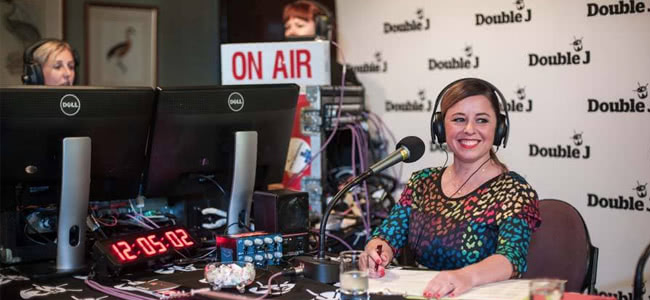Algorithm – it’s a word that’s becoming increasingly common in the media sphere. No longer just some obscure verbiage found in an engineering textbook, algorithms are the ship that’s set to lead us into the new millennium.
Every hot new app you hear about it is better than the other 50 apps just like it because of its “unique algorithm”, and companies and even artists are using them to decide on the best course of action for their customers or careers, respectively.
Even your favourite digital triple j sister station uses them. Much like streaming services such as Spotify and Pandora, the music you hear coming through your speakers when you tune into Double J is in fact determined by an algorithm.
“Our music programming jobs are done in part by algorithms,” Double J content director Meagan Loader recently told the Sydney Morning Herald. “It’s no secret that radio uses music-scheduling software.”
Double J’s algorithm reportedly helps to make the station’s playlists less predictable and adds an element of balance, particularly in terms of measures such as genre, pacing, and the gender of the vocals heard on a given track.
However, in the case of Double J, there’s people behind the algorithm, doing things a piece of code simply can’t. It’s the job of Double J’s music director to finesse the schedule so that the playlist flows intuitively and with the proper timing.
For example, Loader says, it’s the job of the music director to makes sure “Fire in the Disco isn’t playing straight after the news covering raging bush fires”. This is something that an algorithm may not take into consideration.
[include_post id=”464887″]
Double J are hardly an outlier – many radio stations use algorithms to determine their playlists.
So does this mean that radio stations are basically streaming services with the occasional quip from a host and more ads? Should you just as well listen to a streaming service?
Loader disagrees. In fact, triple j has created some of the most popular playlists on Spotify. “When you turn on the radio, it serves a different need or ‘job’ than when you turn on a streaming service,” she said.
Radio, Loader contended, is about the “shared, simultaneous experience”, it connects you to the world around you. Fittingly, it’s the human element that’s important when tuning into a particular radio station.
As for algorithms, at the moment, even the ones used by streaming services need a human being curating the playlists they generate. It’s precisely why places like Spotify and Pandora hire teams of curators, analysts, and musicians.

































